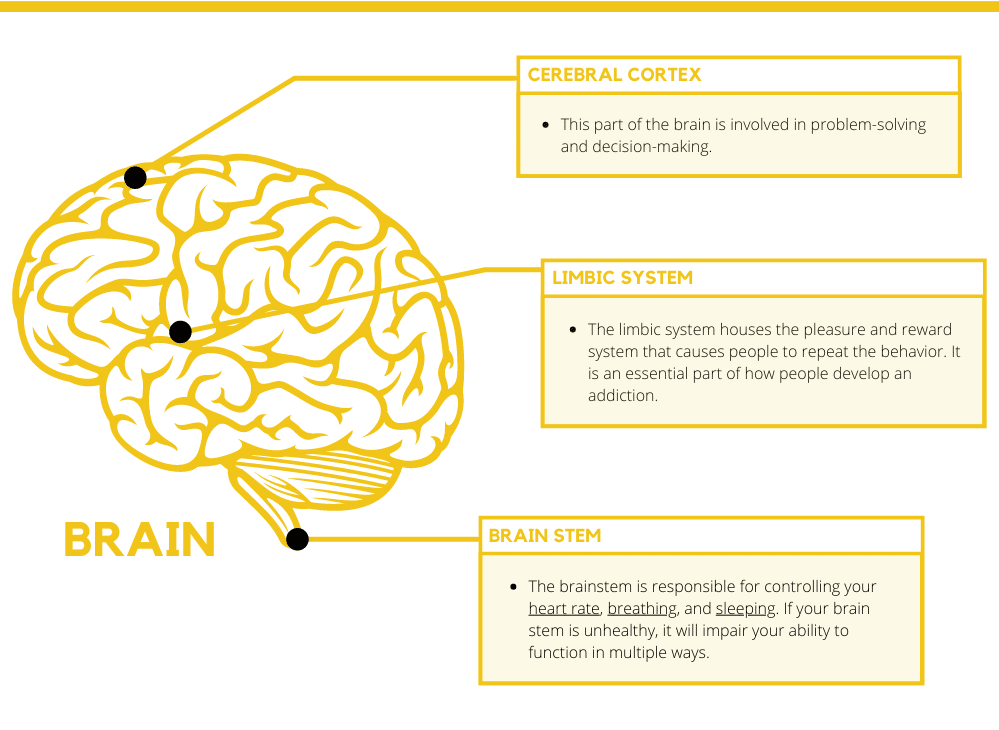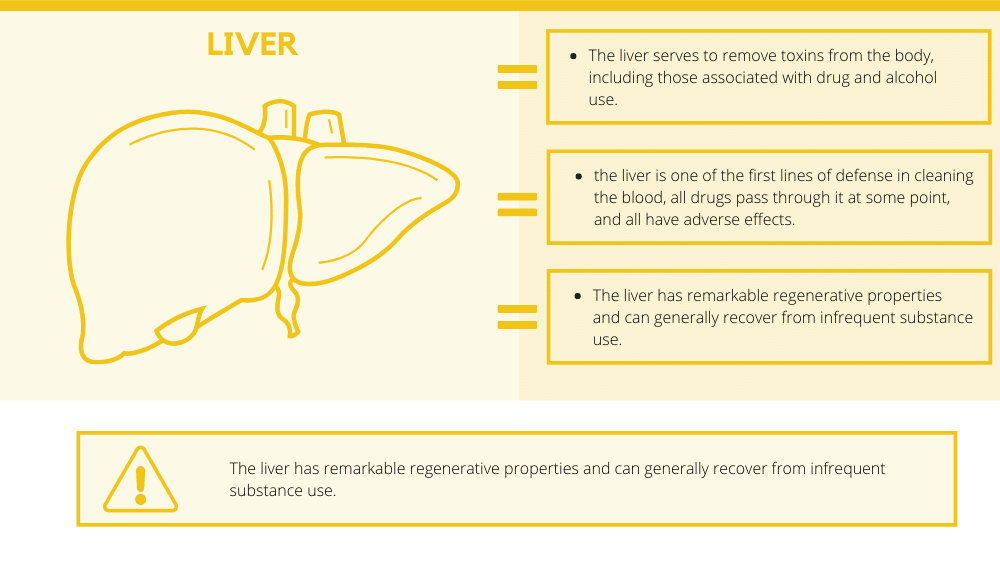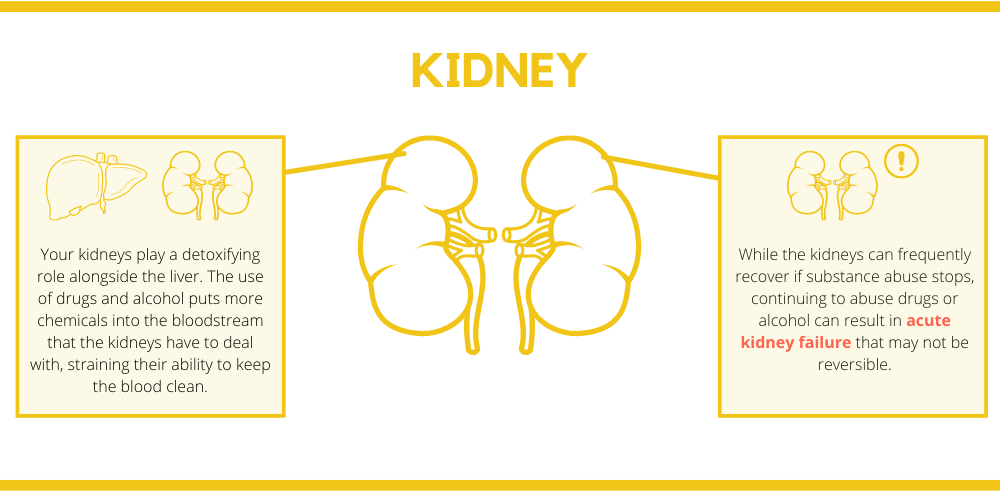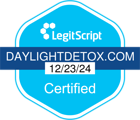Alcohol and drug misuse can have a wide range of effects. Did you know a single instance of alcohol or drug misuse can have profound negative consequences? Different types of drugs affect your body in different ways, and the effects associated with drugs can vary from person to person. How a drug affects an individual is dependent on a variety of factors. But the health consequences of addiction are widely known and documented for years. There were 70,237 drug overdose deaths in the United States in 2017, and that is just one of the countless grim statistics associated with the consequences of addiction.
Whether you are struggling with addiction yourself or are supporting someone else’s battle with addiction, Daylight Recovery Center is here to help you. Take a moment to learn the health consequences of addiction, how sobriety can actually help repair damage, and what you can do to get on the right path. Read on to learn more!
What are the health consequences of addiction?
Although initial drug use may be voluntary, drugs can alter brain chemistry. This can actually change how the brain performs and interfere with a person’s ability to make choices. It can lead to intense cravings and compulsive drug use. Over time, this behavior can turn into a substance dependency or drug and alcohol addiction. Immediate health consequences are easy to understand, and they can be very hard to ignore. But some health impacts tied to drugs aren’t as clear-cut.
Specifically, some health issues are tied to continued use of the drug over a period of several weeks or months. Just as cardiovascular disease damages the heart and changes its functioning, addiction changes the brain and impairs the way it works. Below is an image of how the brain of an addict changes through the process of recovery.
The Brain

We typically talk about the brain in the context of addiction development and mental illness. However, the brain is the center of functioning for your physical body, and it is responsible for all your activity. Chronic substance abuse affects three main areas of the brain.
- The brain stem: The brainstem is responsible for controlling your heart rate, breathing, and sleeping. If your brain stem is unhealthy, it will impair your ability to function in multiple ways.
- The cerebral cortex: This part of the brain is involved in problem-solving and decision-making.
- The limbic system: The limbic system houses the pleasure and reward system that causes people to repeat the behavior. It is an essential part of how people develop an addiction.
The Liver

The liver serves to remove toxins from the body, including those associated with drug and alcohol use. Because the liver is one of the first lines of defense in cleaning the blood, all drugs pass through it at some point, and all have adverse effects. The liver has remarkable regenerative properties and can generally recover from infrequent substance use. However, the longer an addiction persists, the more cells die, eventually making it impossible to reverse alcohol damage.
The Kidneys

Your kidneys play a detoxifying role alongside the liver. The use of drugs and alcohol puts more chemicals into the bloodstream that the kidneys have to deal with, straining their ability to keep the blood clean. While the kidneys can frequently recover if substance abuse stops, continuing to abuse drugs or alcohol can result in acute kidney failure that may not be reversible.
Short Term Health Consequences of Addiction
Depending on the drug and the amount taken, there is a multitude of short term health consequences of addiction and drug use. Abusing drugs can make you feel invincible, excited, and euphoric. You may behave in a way that is not normal for you, cause you to become hostile, paranoid, or even violent. Psychotic side effects like hallucinations and delusions are also a possibility from drug abuse. These behaviors can be erratic or unpredictable, which could result in getting yourself into a situation that can have real consequences.
What are the signs of an addiction?
Recognizing the signs of addiction is the first step to getting help for yourself or guiding someone you care about to rehab. For this reason, it is critical to have an understanding of the signs of addiction. There are behavioral, physical, and psychological aspects of addiction.
Behavioral Signs: A person’s outward relations with the world whereas physical signs relate to the body’s manifestation of side effects due to the presence of drugs in the system.
Physical Signs: These signs of addiction can manifest as side effects of use, during an overdose, or as a result of withdrawal.
Psychological Signs: Drug abuse also impacts the person’s psychological state. When they’re in the grip of the addiction, the person might not realize or recognize these changes. The psychological signs of drug addiction may include but are not limited to anxiousness, inattentiveness, lack of motivation, irritability or angry outbursts or changes in personality or attitude.
Is there a way to repair the damage caused?
The health consequences of addiction prove it is a destructive disease that can leave many things damaged along its path. Aside from health and behavioral issues, relationships are something that can become negatively affected by a person with an addiction. Luckily, sobriety heals old damages in more ways than one. By allowing your body to begin to operate without the damaging effects of drugs and alcohol, it can begin to heal itself. The human body is a miraculous machine, and by removing the poisons you have been ingesting during addiction you kick start your system into operation.
If you allow it to, sobriety will begin to slowly heal your relationships as well. When seeking to repair these important relationships, it’s vital that you understand exactly what damages have been caused. This can be worked through during your treatment program, including family therapy and listening intently to what they have to say.
“I’m ready to get sober, what do I do next?”
Recovering from the effects of drug and alcohol abuse is a process and a lifelong journey. It goes beyond the act of eliminating substances of misuse from your system to building a strong foundation for a healthier way of life and the positive behaviors that go along with it. Here are a few first steps to take:
Live Your Healthiest Life
When you take the journey to addiction recovery, you commit to living a healthier lifestyle. Many of the health consequences of addiction can be overcome. Taking additional measures to improve your health can also enhance your recovery by helping your mind and body function. As you get into the swing of recovery, you’re probably eager to do all you can to improve your ability to maintain your sobriety — and part of that is taking good care of yourself. You don’t need anyone to tell you that addiction takes a toll on your physical, emotional, and spiritual well-being.
- Add Exercise to Your Schedule
- Find a Healthy Diet
- Healthy Sleep Habits
- Nurture Your Interests
- Rebuild Healthy Relationships
Whether you’re dealing with addiction or not, the same rules of healthy living apply: Eat regular, well-balanced, nutritious meals; get enough good-quality sleep each night so you wake up refreshed, renewed and ready to take on the day; and schedule some time every day to be physically active and to de-stress. These are all crucial elements for staying healthy — and that’s closely tied to staying sober.
Decide on a treatment plan that works for you.
Where there is addiction, there is hope. And you are taking the best first step towards your new life by seeking help along your journey. Daylight Recovery Center is a comprehensive, fully licensed, medical drug and alcohol detox and recovery center. We understand that when someone takes the first step and gives us a call, he/she is at a crossroads. Usually all options have been exhausted and the feeling of hopelessness has sunken in. It’s in this moment you have chosen to make a change and Daylight Recovery is here with open arms.
Health Consequences of Addiction – Daylight Recovery Center Can Help
Focusing on each patient’s specific needs, we provide detoxification and residential programs that are second to none. Our state-of-the-art center offers a quiet, safe, and relaxing environment designed to help you succeed. Begin your journey towards your best life in sobriety by contacting our team today!



